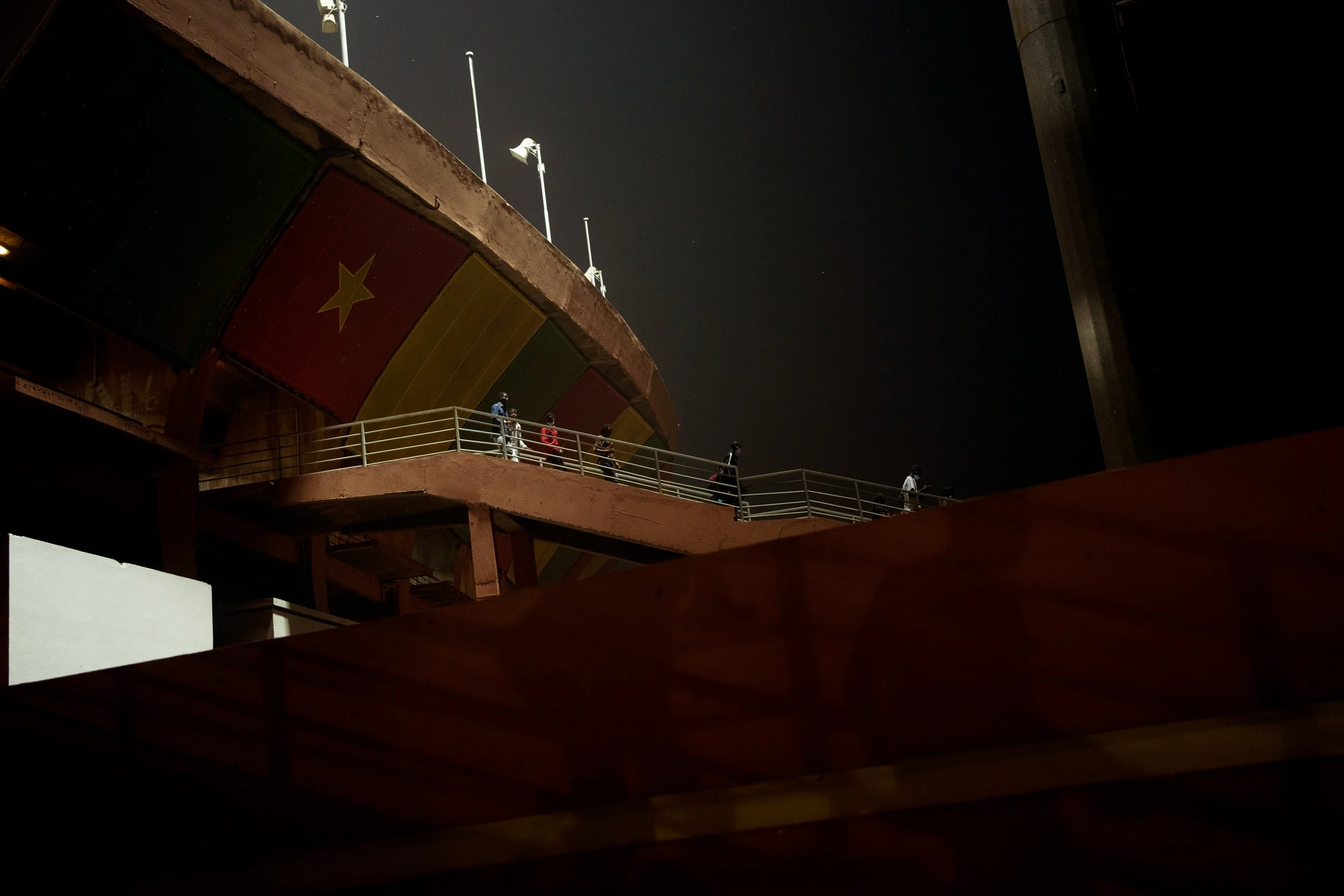AFCON Cameron
+ Ambazonia
As the African Cup of Nations (AFCON) 2023 kicks off in Cameroon, the air is thick with excitement and anticipation. Stadiums are pulsating with the energy of fans from across the continent, each match becoming a showcase of skill, passion, and national pride. Yet, behind the colorful banners and vibrant celebrations lies a narrative that transcends the pitch—a complex tapestry woven with the threads of civil unrest, displacement, and governmental maneuvering.
AFCON 2023 has been framed by the Cameroonian leadership as a celebration of unity and resilience, a showcase of the country's potential on the international stage. However, this sporting spectacle comes against the backdrop of a protracted civil conflict in the Anglophone regions, particularly in the North-West and South-West, known as the Ambazonia crisis. What began in 2016 as a protest against perceived marginalization of English-speaking Cameroonians has escalated into a violent struggle for independence, resulting in thousands of deaths and the displacement of over a million people.
The conflict has its roots in colonial history; the country, once divided between British and French rule, has struggled to reconcile its dual identities since reunification in 1961. The English-speaking regions have long felt sidelined in a predominantly Francophone political landscape, leading to escalating tensions and violence as separatist groups clashed with government forces. The ongoing strife has turned many towns into ghostly shells, with families fleeing their homes, schools closing, and a humanitarian crisis unfolding in plain sight.
Internally displaced persons (IDPs) now constitute a significant portion of the population in these regions, seeking refuge in makeshift camps or overcrowded urban areas, often lacking access to basic services such as food, healthcare, and education. While the international community is well aware of the dire conditions faced by these IDPs, the spotlight tends to shift dramatically during events like AFCON, allowing the government to divert attention from the conflict.
The Cameroonian authorities have deftly utilized the tournament to project an image of stability and progress, keen to attract foreign investment and tourism. However, this so-called "sportswashing" effort is more than a public relations strategy; it risks overshadowing the dire realities that many Cameroonians face. While the football matches captivate audiences, the voices of those affected by the conflict struggle to penetrate the noise. The government’s narrative conveniently omits the ongoing violence and humanitarian crisis, portraying a façade of normalcy that belies the harsh truths on the ground.
In this context, AFCON 2023 serves not just as a sports event but as a litmus test of global attention and moral responsibility. As the world tunes in to watch the continent's best teams clash, it must also confront the complexities of the socio-political landscape in Cameroon. While players dribble past defenders, the real struggle remains for those caught in the crossfire of a conflict largely ignored by the international media.
As the tournament progresses, one can only hope that it inspires not only a celebration of African football but also a renewed commitment to addressing the humanitarian crisis unfolding in the shadows. In the end, it is crucial that the world sees beyond the goals and glory, acknowledging the people whose lives have been irrevocably altered by conflict, and recognizing that the beautiful game should not mask the grim realities many continue to endure.l















